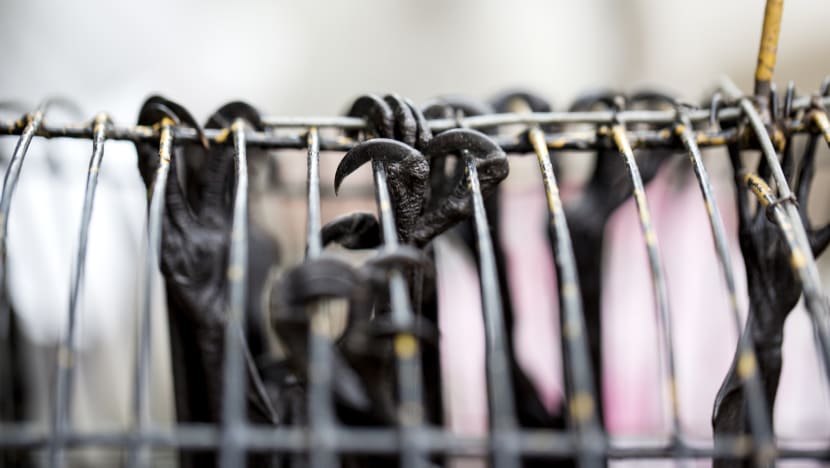More pandemics will happen unless humans repair relationship with nature: Experts

Disrupting the illegal wildlife trade is a key recommendation to prevent future pandemics. (Photo: iStock/headpixel)
BANGKOK: More costly pandemics will continue to occur unless more resources are targeted at preventing viral spillover from animals to humans, according to experts speaking on the sidelines of the United Nations General Assembly.
The webinar discussion on Monday (Sep 27) involving government, health and environment leaders followed a report released by a task force convened by Harvard University looking at the science of pandemic prevention.
The report found that pandemics can be prevented at a relatively minimal expense compared to the extreme global cost of the COVID-19 outbreak while its key recommendations focus on conserving forests, addressing the trade of wildlife animals and consumption and improved livestock biosecurity.
Zoonotic diseases have been found to spread more easily from wild animals, often via domestic or farmed animals, when humans come into closer contact with them. That can be the result of deforestation, land use changes or the hunting or trading of wild species.
While wildlife smuggling was reported to have decreased drastically in the aftermath of this pandemic, the UN's Office on Drugs and Crime (UNODC) has warned that trafficking networks are poised to rebound as international borders open up, including in Southeast Asia.
Renowned environmentalist Dr Jane Goodall, a keynote speaker at the event, warned that humanity needed to urgently recalibrate the relationship with the natural world.
“Our health and wellbeing is inextricably linked with the health and wellbeing of the environment in which we live,” she said.
“The COVID-19 pandemic was caused by our relentless destruction of the natural world and exploitation of wild and domestic animals. We created conditions that allowed pathogens to spill over from animals to people relatively easily.
“Scientists studying these zoonotic diseases have been warning us of the inevitability of pandemics such as COVID-19 for years. Alas, we did not listen, now we pay the price.”
The experts agreed that investments in containing diseases and developing and rolling out vaccines were insufficient responses to a problem that could keep recurring in the future.
“The most just and moral solution to prepare for future pandemics is to prevent them entirely, to stop them at the source; to prevent the spillover of viruses from animals to humans, which has been the origin of all pandemics in the last century,” said Dr Nigel Sizer a co-founder of the Coalition to Prevent Pandemics at the Source.
The Harvard report found that only US$4 billion is spent annually worldwide on spillover prevention activities, a tiny fraction of the estimated US$11 trillion that COVID-19 has cost the global economy.
Spending between US$22b and US$31 on prevention methods could be “transformational”, according to Dr Aaron Bernstein, the leader of the Scientific Task Force for Preventing Pandemics at the Source from Harvard T.H. Chan School of Public Health.
“The challenge we have is recognising that a dollar spent in conserving nature is a dollar spent on conserving ourselves,” he said.
Helen Clark argued the importance of establishing a strong connection between climate change, forests, wildlife habitats and human health, in order to shift spending priorities.
“It may help mobilise more support across the set of challenges than might result if we dealt with them one by one,” said the former Prime Minister of New Zealand and co-chair of the Independent Panel for Pandemic Preparedness and Response.
The European Union has promised to double its biodiversity financing, especially in vulnerable nations. Per Olsson-Fridh, Sweden’s Minister for International Development Cooperation argued that a “reset in our relationship” with nature was necessary, alongside long-term investments and wider sustainability ambitions.
“We all need a mental shift, the recognition that the best attainable human health is not limited to access to vaccines. What is good and important to human health is also of crucial importance to our planet and biosphere,” he said.
“Restoring our relationship with the biosphere through taking climate action and halting biodiversity loss is an urgent task for humanity.”















